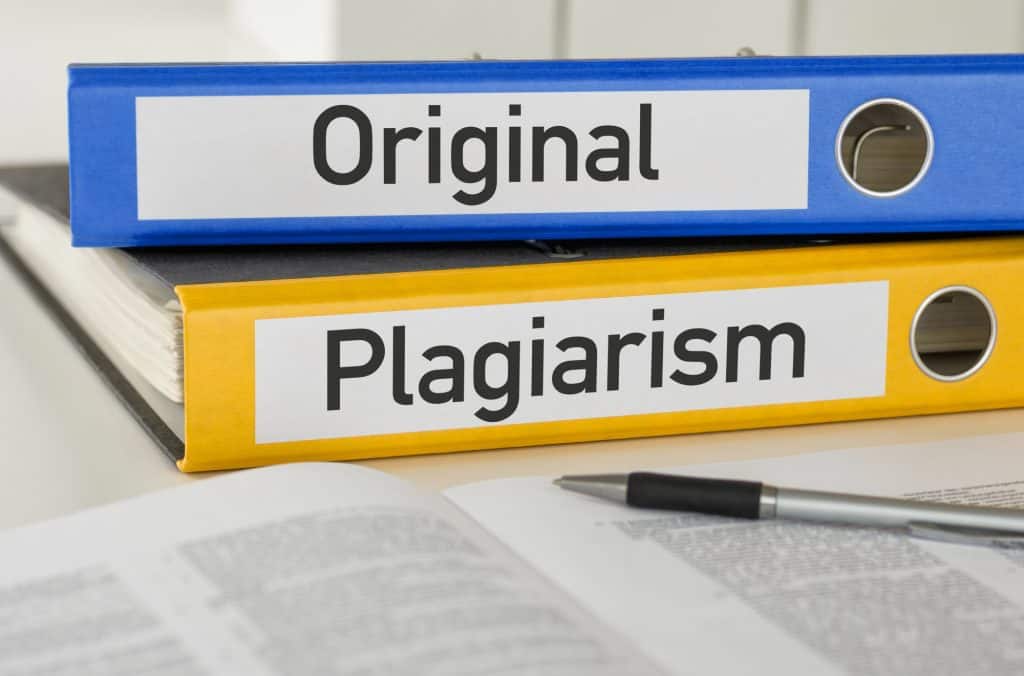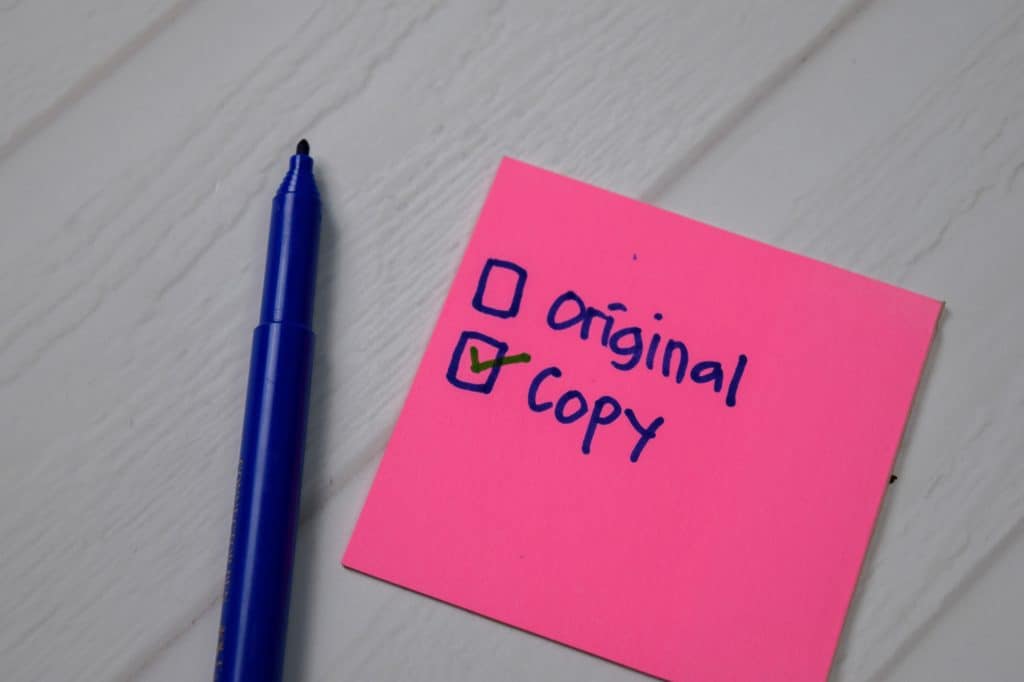Plagiarism is a serious offense in any field but it can damage your reputation as a content creator. In today’s digital world, Google and other search engines are constantly scanning websites for instances of plagiarism. If you are found guilty of this practice, it can hurt your SEO ranking and prevent your content from being discovered by potential customers.
This article explains how and why plagiarism can hurt your SEO, along with tips on avoiding falling into that trap. We also reveal some of the most useful tools to check your content for similarities with other authors’ works.
Table of Contents
What is plagiarism and how does it impact SEO?

Plagiarism is the act of taking someone else’s content and passing it off as your own. In the educational and professional worlds, it is also known as copyright infringement and can have serious consequences for those caught.
Although the word “plagiarism” is often used interchangeably with copyright infringement, there is a significant difference between the two. Plagiarism is when you intentionally pass someone else’s work off as your own. It’s intentional and malicious and can have serious consequences for your career.
On the other hand, copyright infringement is when you unintentionally use someone else’s work without permission. You might not even know you’re doing it, but it can still have serious consequences.
How does plagiarism hurt SEO?
The most obvious way that plagiarism can hurt your SEO is by getting your content removed from the web entirely. Google is extremely strict when it comes to copyright infringement. If you are found guilty of plagiarizing your content, you will be penalized by having your website de-indexed. If deemed severe enough, this can mean a complete removal from the search engine entirely. It is worth knowing Google’s policy guidelines on plagiarism to be on the safer side.
If your website is removed from Google, it will be extremely difficult for you to find new customers. That is true for your social media accounts because Google owns both platforms. That leads us to another way plagiarism can hurt your SEO – your social media accounts could also be removed from the web.
Why is plagiarism such a big deal?
There are many reasons why plagiarism should be taken seriously – not least of which is the fact that your reputation is at stake. If you are caught plagiarizing, the reputation you have built up over time could be completely destroyed. Nobody will want to employ you or buy your products, and having a bad reputation can be a huge barrier to success.
The truth is that most people don’t realize how easy it is to plagiarize unintentionally. You may have written an entirely original blog post. You may have used plenty of your research and referenced other sources as you went along. But if you fail to cite and properly credit those sources, you run the risk of accidentally plagiarizing their content.
In the same way that written content can be misused, visuals are also susceptible. That’s why many creators and businesses also explore image protection online as part of a broader strategy to safeguard their intellectual property.
How to know if your content has been plagiarized?
If you are concerned that someone has plagiarized your content, you should check to see if there’s a tool available for this. If you’re looking at a website, many sites help you check for plagiarism. If you’re working with a document, you can also run it through a plagiarism checker.

There is a number of plagiarism-detection tools out there that can help you determine whether or not your content has been plagiarized. Most of these will check your content against a database of millions of web pages, articles, and other pieces of written content. Some of the most popular plagiarism-detection tools include,
Grammarly
That is quite a renowned tool for checking plagiarism in your content. After checking it with millions of web pages, it ensures that your content is free from plagiarism. Grammarly tool also has access to ProQuest’s databases to ensure academic contents are free from plagiarism. This tool not only removes plagiarism from your content but also guides you regarding proper citation and credit that needs to be provided in your content.
Copyscape
That is another reliable plagiarism checker tool that plenty of website owners rely upon. It has ranked as the number 1 plagiarism checker tool in a plagiarism software test in Berlin, Germany. This tool ensures that your website’s new content is free from plagiarism and prevents you from using duplicate content.
ProWritingAid
Many content creators find this tool ideal for checking plagiarism in their content. You can directly use this tool online, or you can also use their plug-in for MS Word. ProWritingAid also ensures they never share, sell, or store your content in their database.
However, other effective tools are available in the market to check plagiarism in your content. All these tools offer both free and paid versions. Paid versions offer more features and accuracy for obvious reasons. It is worth using them rather than getting penalized for generating plagiarized content.
Final words
Plagiarism is a serious offense, and it can have a significant impact on your SEO. If you are guilty of plagiarizing your content, your website could be de-indexed from Google entirely. That makes it incredibly difficult for your content to be discovered by potential customers. There are many reasons why plagiarism is such a big deal, but the most important one is this – it’s just not ethically sound. If you’re a professional content creator, you should never take the words of others and pass them off as your own.
There are plenty of ways to borrow from other sources while still properly crediting the original authors. That can be as simple as using direct quotes and attributing them to the correct author.
Even after taking care of plagiarism in your content, it is safer to measure the SEO metrics of your website at regular intervals. That will ensure holding the rank of your website. You can use online SEO tools to make this task easier.
If you want to be a successful content creator, you must be careful to avoid plagiarizing your work. It would be best if you also were on the lookout for plagiarism, as this is a serious issue on the internet. With these tips and tools, you can better protect your content and avoid being caught in plagiarism’s grip.


